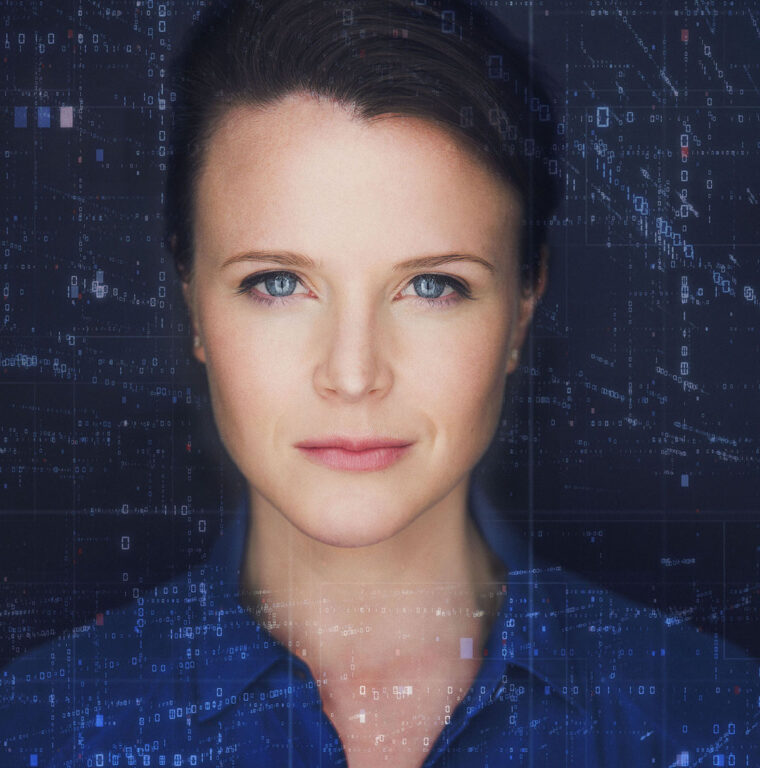We all hear how big data is changing the world, but what exactly is “big data”? As a statistician, one who deals in data, I can tell you I have no idea. Is big data 100,000 pieces of information? Is it 100 million? Or is it 100 trillion? There is no good definition — but, what we do know is that we are collecting more data than ever, and we are struggling to keep up.
The newest, biggest, baddest and most influential industry today is data, and it’s time that we pay a lot more attention.
Our data is being used by governments, businesses, charities and everyone else to convince, manipulate, sway and sell to you in every way imaginable, and many ways that we can’t even begin to imagine.
In the age of COVID-19, we are all seeing, every day, the real impact that data has on our risk decisions, on policy and our health. However, we are also seeing the powerful (and untested) tools that big tech has created for regulation and surveillance of individual Americans from thermal cameras to camera software that literally rings an alert to security staff when workers are standing less than 6 feet apart.
But this new world of questionable data use isn’t just a result of the new coronavirus, Apple used contractors to listen in to users’ private voice conversations that Siri had recorded. Apple apologized. But this wasn’t an accident, not something to apologize for. Apple did this purposefully and intentionally in order to “improve Siri.” What else are they doing that we don’t know about? What else are other major companies around the world doing?
Governments are acting just as poorly. In the UK, police are testing facial-recognition apps for officers’ smartphones, allowing an officer to check a scan of a person’s face against a police database. For the police to get your DNA or fingerprints, you have to be arrested, but with facial-recognition technology, you simply need to be in public. China has been accused of doing just this in order to target and subdue minorities, specifically a Muslim minority group.
We don’t even need government involvement to be in fear of a big-brother state. We do it ourselves (80 million of us to be precise) with apps like FaceApp, where you upload a picture of yourself and it will age and/or beautify your photo. The problem is the app, developed by Russians, comes with those pesky little terms and conditions, in effect giving them the right to use your photo for absolutely anything they choose, in perpetuity. Don’t be surprised when your kids’ faces appear as Russian bots in the near future.
Some uses of your data are even less obvious than that. I saw an ad for palm/psychic reading on Instagram the other day. It instructed me to take a close-up picture of my entire hand (including my fingers) so that I could get a detailed, intricate palm reading … for free! But there’s no free lunch. I’m actually giving up my Instagram username and my fingerprints. The terms and conditions of this app stated that it could keep and use them in perpetuity. Oops.
So, what do we do? Should we shun “big data” all together or try to regulate it into nonexistence?
To answer that, I would ask what about all the good things big data do? And boy there are many. In just my own research, I have seen incredible impact that never would have been possible before.
The Hive, the data initiative of the United Nations High Commissioner for Refugees (UNHCR), has used data not only to acquire new donors (using similar methods to those used by Obama or Trump during elections to acquire new voters), but also to help refugees in incredible ways. For example, the Hive used satellite imagery of refugee camps to improve refugee camp planning and maintenance.
Smile Train aims to serve the more than 170,000 children born in developing countries with cleft lip/palate each year. My research team and I, alongside Smile Train, are working on a project to revolutionize the care of those children (and many adults who have never had the chance to be treated), using technology developed solely due to the advances in “big data.”
There are countless other examples of data being used for incredibly good purposes. Yet, clearly, there are more examples of data being used with terrible consequences. Here is the crux of the matter: An unimaginable number of laws and rules have been put in place to protect your rights as a citizen of the United States. But when it comes to protecting your data, there are virtually none. At some point soon, the U.S. government is going to have to step in and regulate the data industry, just like any other major industry. It’s for the same reason the energy and transportation industries are regulated. It contributes to the good, safety and prosperity of the American people.



